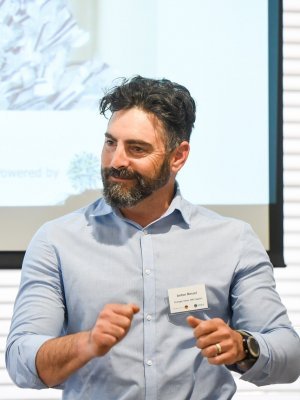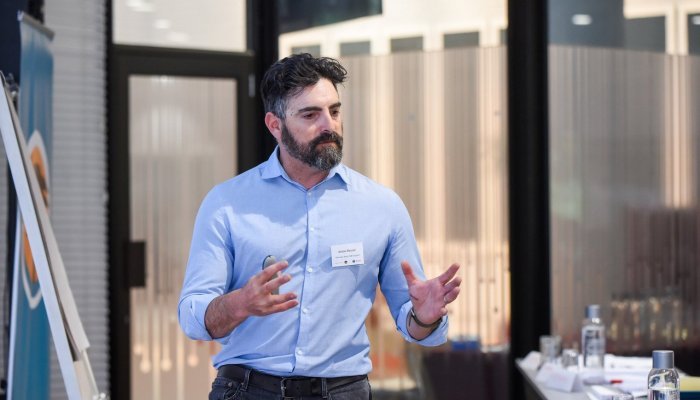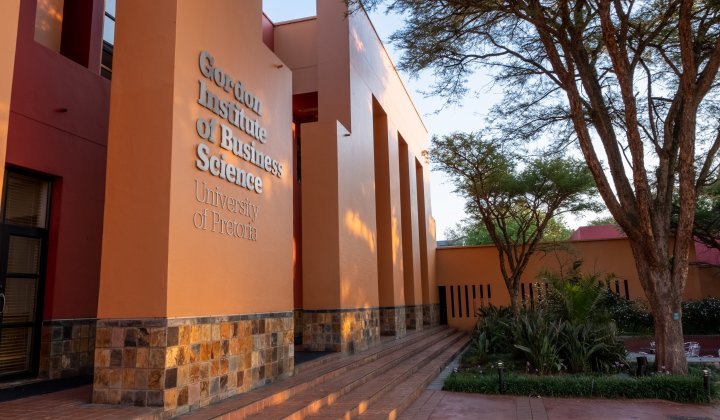Long before the Covid-19 pandemic, the world of work was changing, with many organisations looking to consultants for strategic and operational guidance.
The pandemic accelerated these trends, and, coupled with the hybrid work model (work from home and office), organisations are once again turning to consultants for guidance on a wide array of subjects: how to grow revenue; effective operations; digital transformation; innovation; and the attraction and retention of talent, to name just a few.
What is consulting?
Chad Schaefer, the managing director at Schaefer Management Consulting, says management consulting is typically a knowledge-intensive service that supports decision makers in an organisation through providing objective advice, and in some cases, helping implement that advice.
“Management consulting is a skilled profession that assesses business problems and opportunities and recommends context-appropriate solutions. However, organisations are responsible for making decisions based on the outcomes,” says Schaefer.
Gaby Rajak, founder and managing director at Gaby Rajak Leadership Coaching and Consulting, says management consulting is a relationship-building process that enables the co-creation of insights to generate options and possibilities for the business to win.
“The idea is to stimulate and encourage organisations to think out of the box when operations are not in sync with the strategy,” says Rajak.
She says a key takeaway from management consulting is to empower organisations to learn, adapt and be flexible in a changing environment.
The role of consultants
Schaefer says consultants are professional problem solvers, facilitators and opportunity enablers who, through their experiences, offer solutions to improve business performance.
“They design and implement value-adding solutions across business functions including strategy, operations, information and people.”
He emphasises that clients or organisations are solely responsible for final decisions based on the consultation.
Natalie Maroun, managing director at The Performance Agency, says with a broad range of services offered by consultants, their business focuses specifically on human capital advisory to help organisations solve their most challenging people and performance problems. “We do this in creative and pioneering ways to deliver real lasting impact.”
Consultants are sometimes confused with mentors and coaches, and yet their services differ, says Anton Ressel, a director at ARC Consulting.
Ressel explains that consultants are often required to do the actual work where necessary to help complete a project. Skilled mentors or coaches focus on enabling individuals or teams to carry out the tasks.
“Consultants leave once they have delivered the intended solutions, although in some cases, they stay on to provide strategic support over a period of time,” says Ressel.
As businesses grow, so do their needs, along with having to adapt to operational environments.
It then becomes even more critical to consult externally as it brings a fresh perspective on the issues, challenges and opportunities, says Emma Montocchio, head of innovation at Decusatio.
As a firm that specialises in advising management teams on accessing finance and markets, she says some issues need a high-impact consultant to lay the groundwork. This makes it easier for specialist in-house consultants to implement solutions.
For example, she says innovation is topical and relevant currently, with many organisations under pressure to innovate in some way or another. Leadership teams are not equipped to unpack strategic goals of what innovation should look like or achieve for the business.
Experts say it is important for organisations to establish internal consulting to advance strategic initiatives across the business and to implement projects for operational excellence. This also accelerates the work of an external consultant as the foundation and systems already exist.
“Internal consultants are valuable in monitoring developments in the industry and looking for new opportunities to assist the business,” says Montocchio.
When to seek consultation
Montocchio says since consulting is a trust-based relationship, organisations will always benefit if they need to refresh and rethink their business by speaking to a professional.
“When an organisation feels stuck about its direction, it is a good time to speak to a management consultant,” says Rajak.
She says consultants partner with organisations to understand their current realities, where they need to go, and how to get there. They also get a glimpse into how a company is organised to achieve certain strategic goals
“Consultants help the leadership team to prioritise strategic objectives, and empower teams to hold each other accountable to implement the recommendations,” she says.
Rajak says leadership consultants facilitate a process for high performance aligned to the strategy and culture. The role of leadership is to embody and manage the culture.
Organisations consult when they need expertise or where they lack specialised skills or need problem-solving flexibility, to generate ideas or adopt change, says Maroun.
“In all these instances, consulting is a useful tool that provides insights and tailor-made solutions enabling organisations find new ways of thinking and problem-solving abilities,” she says.
When there is a lack of internal capacity, hiring a consultant is a more cost-effective means of accessing specialised expertise to solve issues, Ressel points out.
Schaefer says organisations consult for many reasons, including setting corporate strategy to help leadership; developing and implementing growth strategy; pursuing operational excellence; or to configure or transform the business
Value creation
Schaefer says good consultants always add more value than their fee, for example, by increasing client revenue, reducing costs, increasing productivity and return on capital employed, helping clients validate an appropriate solution before incurring huge investments, or by transferring knowledge to make client personnel more effective in their roles.
“Good consultants can see solutions to problems that the organisation may not have been aware it faced, and this adds value,” says Ressel.
For Montocchio, defining goals such as whether an organisation is looking for an idea, execution or both is important. “Organisations with defined goals know how to measure performance and value.”
Maroun says consultants create technical value driven by their in-depth expertise and specialisation in problem solving to create efficiencies within the business.
They also add political value that entails managing organisational dynamics, facilitating convergence among stakeholders or serving as a sounding board or trusted adviser capable of implementing unpopular changes.
[sidebar]
How to Prepare for Consultation
For meaningful consultations, experts provide the following preparation tips:
- Assess organisational readiness and financial capability to work with a management consultant while operating as usual
- Clearly define the scope of work such as the problem that needs solving, desired effects and timeframes
- Collect relevant data to help inform the context of the engagement
- Establish a steering committee to facilitate sessions and resources needed during consultation
- Look for opportunities and trends within your sector that speak to your area of need for consultation
sidebar 2
Do’s and Don’ts for Consultants
Montocchio says consulting is a trust-based relationship and consultants should respect this trust. Sometimes consultants fail to differentiate between strategic and operational goals, and they end up not achieving the intended goals.
These consultants are often on expensive retainers and purport to be thinking strategically but cannot drive their ideas through the business.
In the table below, experts offer do’s and don’ts for consultants looking to engage with organisations.
Do's
Ask questions for clarity
Always add more value than fees
Challenge the status quo
Coach and support clients
Define client’s reality based on evidence and observation
Get the buy-in of all stakeholders to ensure transparent dialogues
Listen in order to understand the unique needs of the client
Provide insight
Recommend appropriate and defendable solutions, for the client’s context
Remain relevant, objective and independent
Validate findings
Don'ts
Make no assumptions about organisational issues
Do not try to implement cookie-cutter solutions
sibebar 3
How Inospace leveraged off consulting to remain innovative
When pioneering and innovative business Inospace started growing amid the Covid-19 pandemic, it turned to management consulting to guide its journey.
Established in 2017, Inospace is South Africa’s leading owner and operator of serviced logistics properties serving small and medium enterprises (SMEs).
Founder and chief executive Rael Levitt says the entrepreneurial business grew to levels where it needed an effective management team and structures in place.
“We needed an external adviser to direct our growth strategy,” he says.
He explains that their business is operations intensive, hence they are always busy with day-to-day operations. The consultant forced management to discuss the critical business strategy aligned with growth plans.
Consulting helped the organisation to reshuffle its existing leadership team, create a reporting structure with clear key performance indicators (KPIs), a well-articulated and documented three-year strategy.
“We consulted on a specific issue, but this is an ongoing process, we’ve achieved milestones during the initial period while growing the business. We will return to the same consultant should the need arise,” says Levitt.
Consulting improved performance through creating efficient objectives. “A consultant should be willing to transfer learnings from your organisation, and coach you on how to implement those learnings.”
Levitt, who has been a founder and chief executive all his working life, is no stranger to consulting. He cautions that businesses need to engage the right consultant to avoid an unhappy ending, adding that the process is costly and time consuming.
Word-of-mouth, asking respected leaders and other companies guided the organisation in choosing a consultant. His advice is to find a professional consultant who understands the brief and fits into the company culture.
They must be energetic and optimistic with genuine interest in helping the organisation.
“Importantly, find an expert who is competent to assist the business in a specific area, and also demand innovation to achieve results,” says Levitt.
Consultants are professional problem solvers, facilitators, and opportunity enablers.
Consulting is a trust-based relationship.













